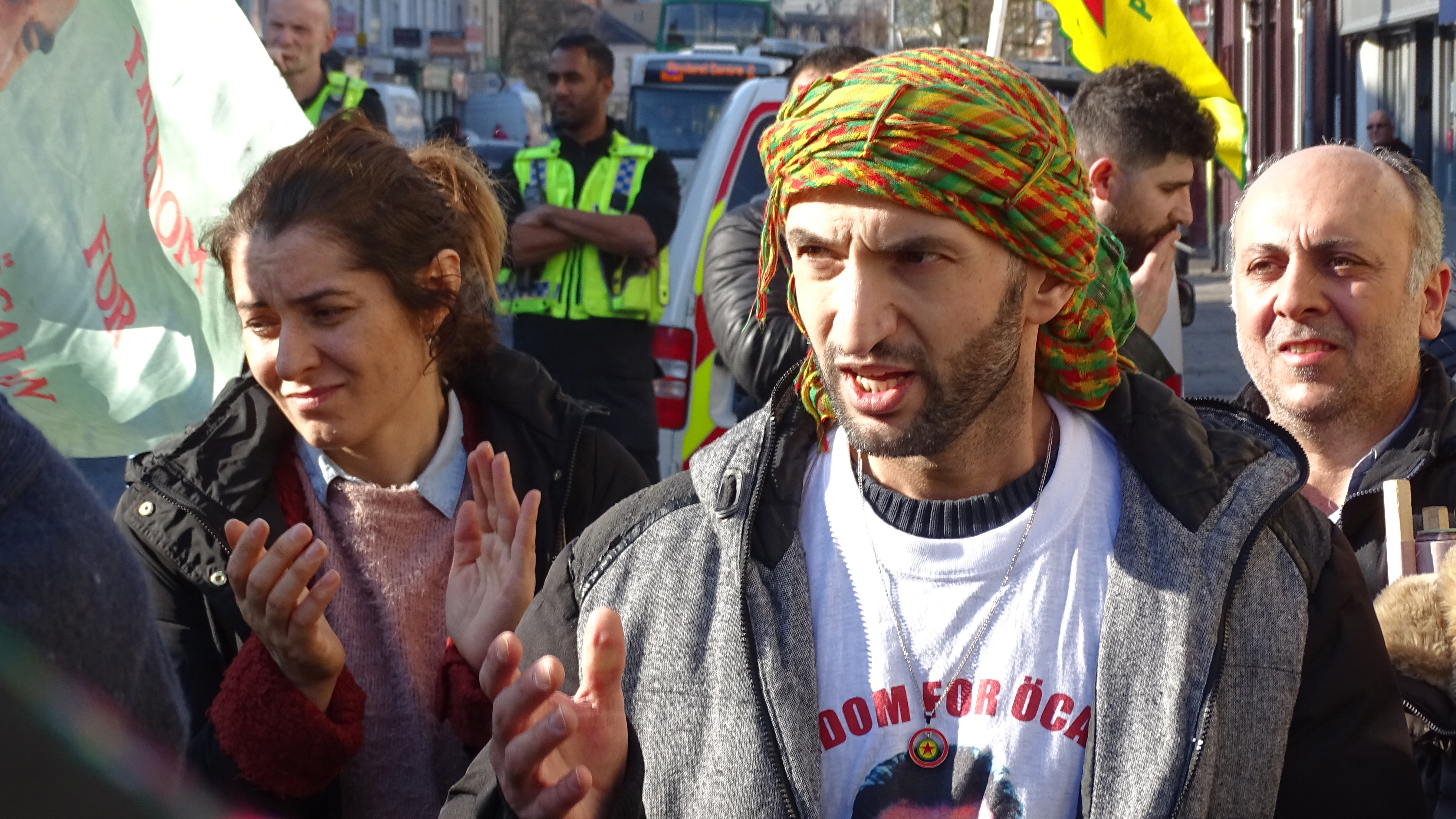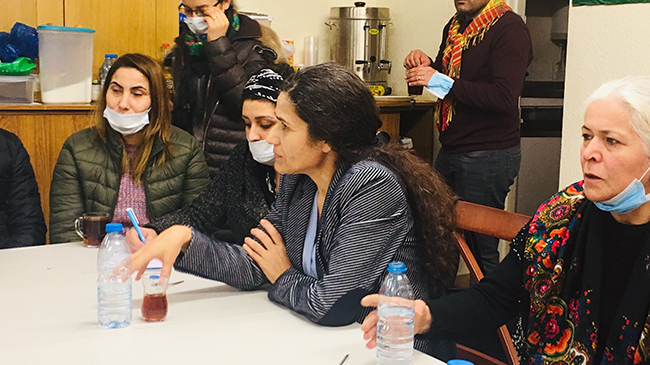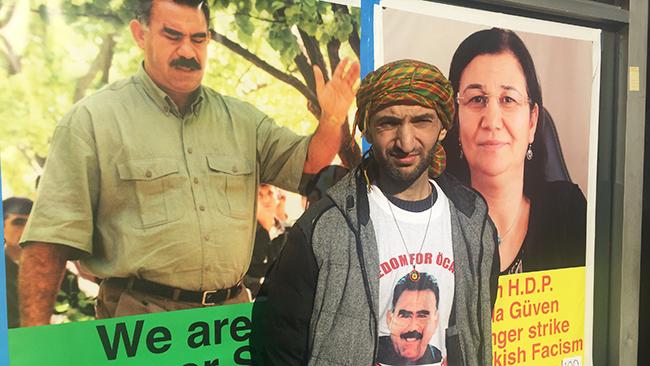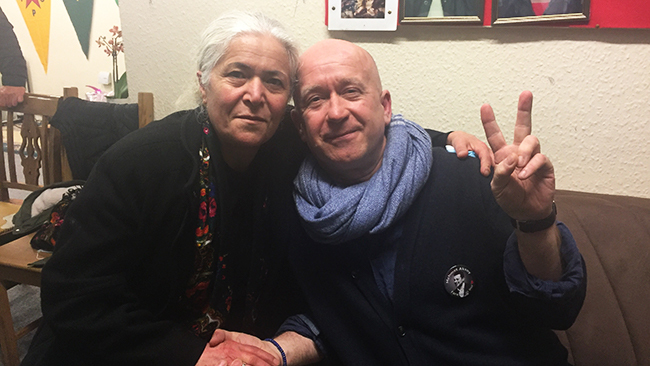The co-chair of the Syrian Democratic Council traveled to Newport on Saturday to support Kurdish hunger striker Imam Sis.

The Kurdish Community Centre in Newport was transformed into a press conference on Saturday, when diplomat Ilham Ahmed arrived to voice her support for hunger strikers and to provide updates on the situation in northern Syria.
Ahmed, the co-chair of the Syrian Democratic Council, arrived from London where she was on a diplomatic mission to discuss the fight against ISIS in northern Syria — which is expected to be defeated in the region within the coming days.
She described “self-administering governance” created among different ethnic groups in the region, part of what makes their successful defense of the region possible.

“The solidarity of these people needs to be guaranteed in the form of autonomy, because this can constitute the core for a democratic Syria,” she says.
After the US announced its withdrawal of troops from Syria last December, the situation has become “chaotic,” says Ahmed. “The democratic structure we have established is faced with attacks, not only from the Turkish state but also the so-called Islamic state and others. It’s a very dangerous situation and we need guarantees.”
“The Syrian Democratic forces need to be recognized for fighting on behalf of the whole world against these groups like ISIS,” says Ahmed.
Ahmed also expressed her support for Imam Sis and for the freedom of Kurdish leader Abdullah Ocalan.

“These hunger strikes show that people in Kurdistan are done dying, they don’t want to die anymore,” she says. “These actions are not actions to die, they are actions to live. To live in justice and in dignity.”
Imam Sis, 32, is on the sixty-seventh day of his hunger strike. Dozens of Kurdish hunger strikers are protesting the isolation of Ocalan in a Turkish prison, where he has been unable to meet with legal counsel.
“To me, to live longer is not important,” says Sis, “The important thing is to live freely and honourably. We all have a right to live in free democratic societies, but we Kurds are not even counted as humans.”
Sis has lost 14 kilograms since beginning his hunger strike, subsisting on vitamin B1 and B12 tablets, a glass of lemonade each day and salt and sugar water. He is now fearing for Kurdish MP Leyla Guven, whose life is in “immediate danger” after surpassing 100 days without food.
There are 40 million Kurdish people in the world, making them the largest ethnic group without state autonomy. Currently in Turkey, 80,000 Kurds are being held as political prisoners.
“All of the means available to the people to express themselves through due politics have been criminalized,” says Ahmed. “We want Turkey to go back to the negotiation process and recognize that there are 20 million Kurds in the country that need to be recognized.”

She also emphasized the importance of liberating Ocalan. “He gives people the tools to do politics differently and determine their own lives beyond statehood. Isolating him means isolating the world from peace,” says Ahmed.
Along the walls of the community centre were portraits of prominent Kurdish activists who have been killed in the fight against ISIS or targeted by the Turkish government including British-Kurdish filmmaker Mehmet Aksoy, whose mother and sister were present at the meeting.
“Their sacrifice is very meaningful to us,” says Ahmed. “It means they left the comfort of their homes to fight together with us for humanity, and that history will remember that and the solidarity of the communities here.”
Shubham Shukla and Ananya Das contributed to this report.
